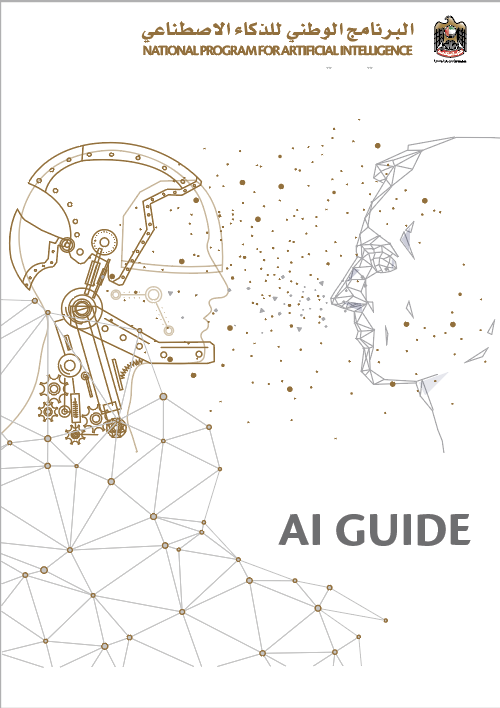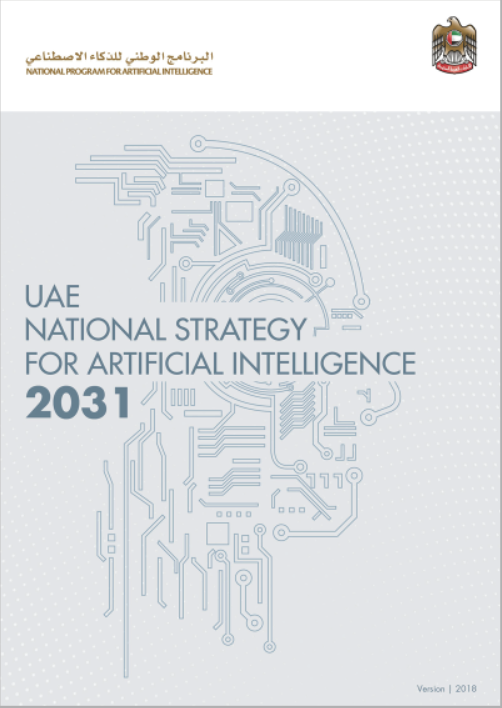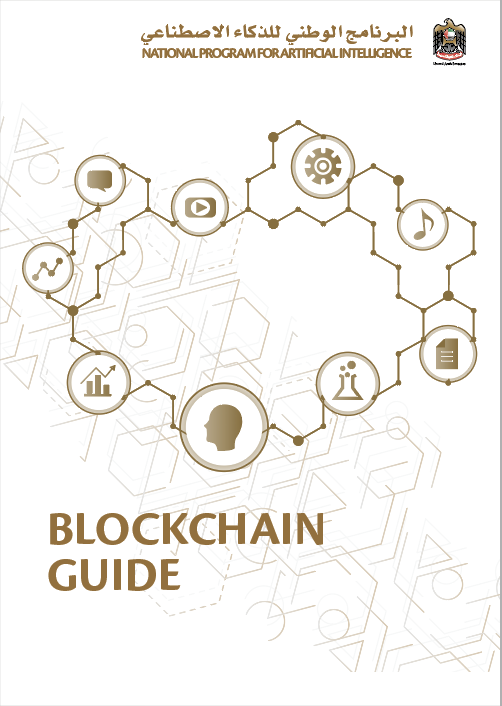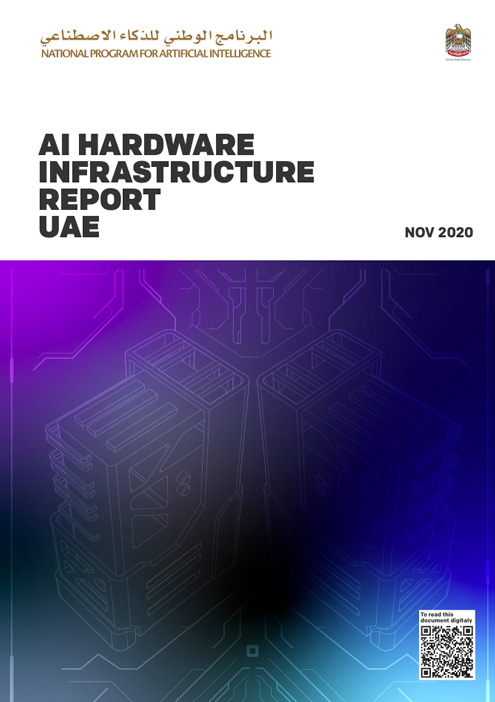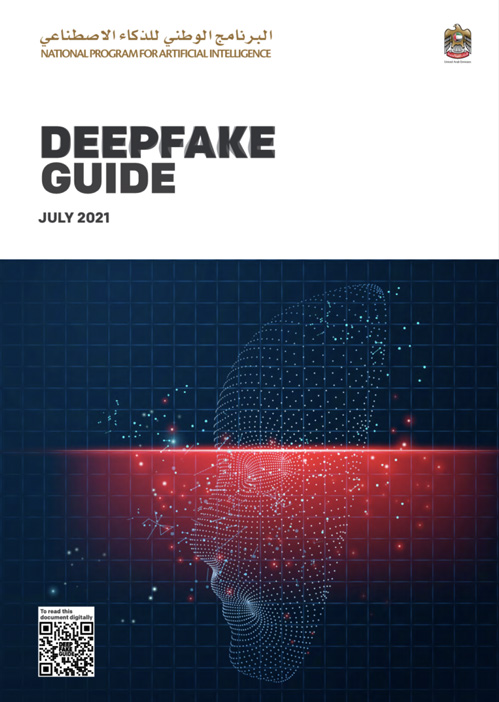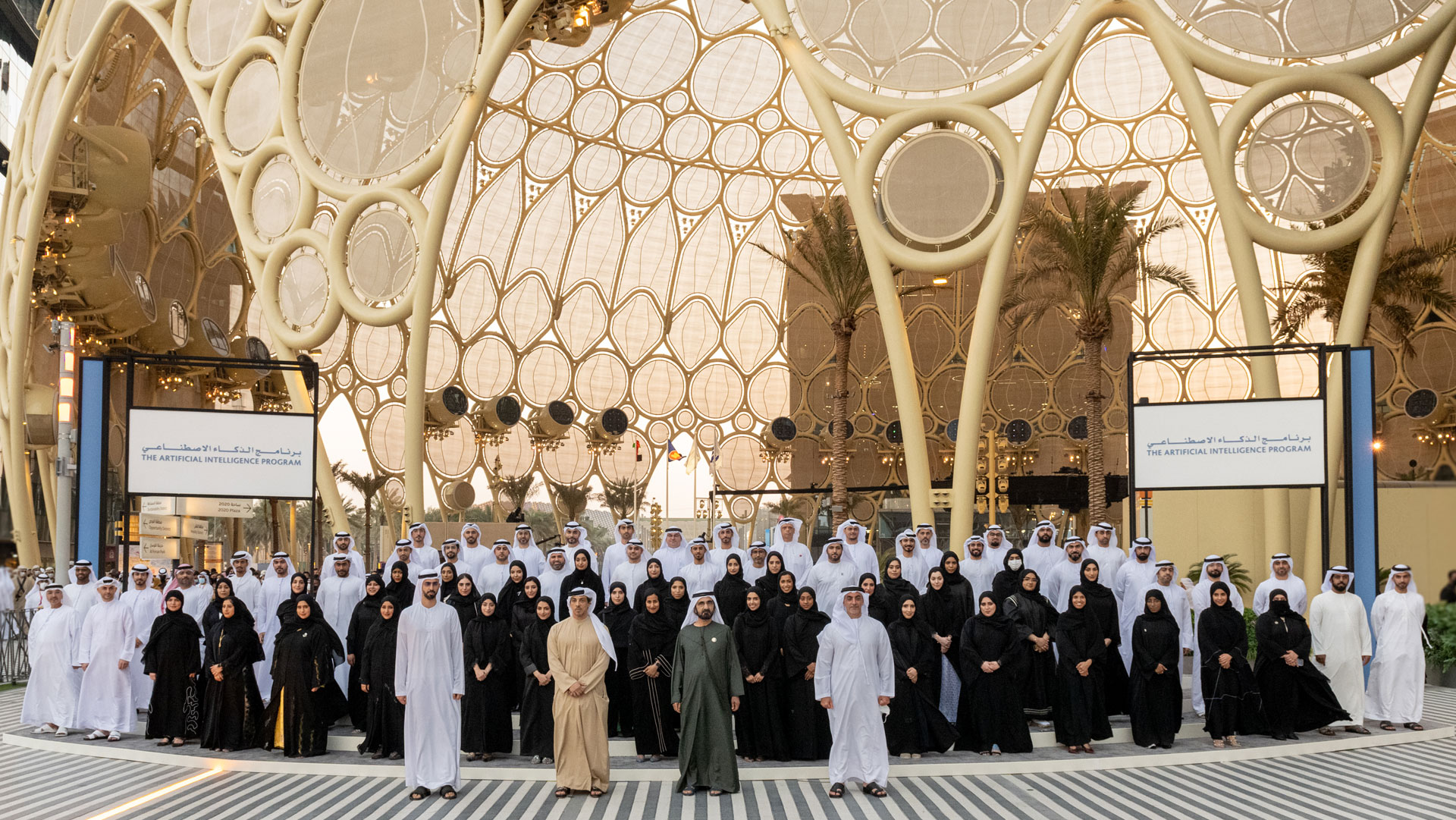
DUBAI, 13th December 2021 (WAM) - His Highness Sheikh Mohammed bin Rashid Al Maktoum, Vice President and Prime Minister of the UAE and Ruler of Dubai, honoured the graduates of the second and third batches of the ‘Artificial Intelligence Programme’ organised by the National Programme for Artificial Intelligence and the Kellogg College - University of Oxford.
The honouring ceremony was held at Expo 2020 Dubai in the presence of H.H. Lt. General Sheikh Saif bin Zayed Al Nahyan, Deputy Prime Minister and Minister of Interior and H.H. Sheikh Mansour bin Zayed Al Nahyan, Deputy Prime Minister and Minister of Presidential Affairs.
His Highness Sheikh Mohammed bin Rashid was briefed on several Artificial Intelligence (AI) projects developed by the graduates during their training to enhance government performance and efficiency.
Sheikh Mohammed highlighted the importance of empowering future generations with the latest technologies to achieve the UAE’s objectives for the next 50 years.
AI solutions are key to building the UAE's technological expertise and supporting its goal of achieving technical, digital and scientific excellence, he said.
The Programme, which featured more than 240 participants from 90 local and federal government entities, aims to empower participants to adopt AI technologies in their work and achieve the objectives of the UAE Strategy for Artificial Intelligence 2031. It seeks to develop participants’ practical experiences in various technology-related applications and demonstrate the means to leverage them in developing innovative future services.
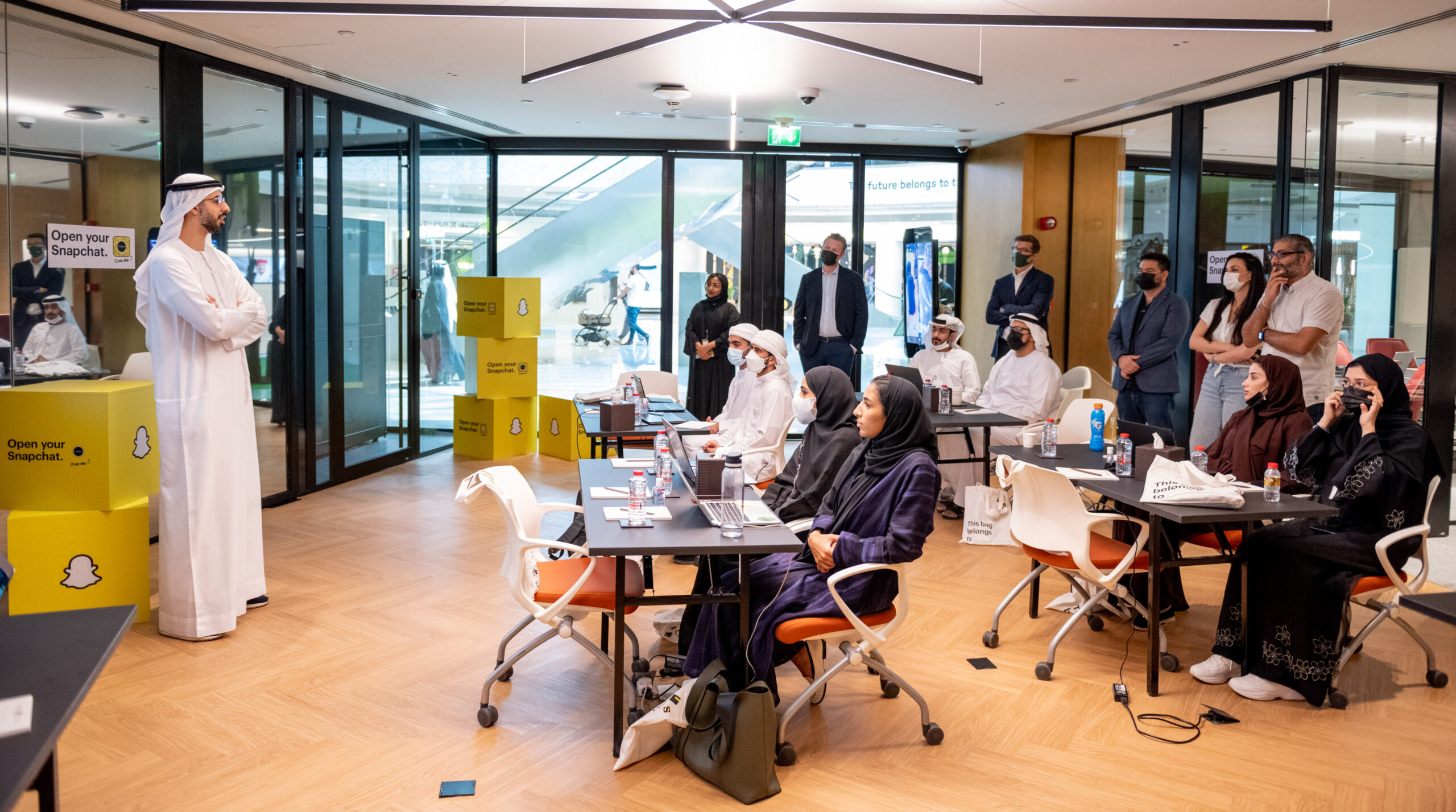
DUBAI, 28th November, 2021 (WAM) -- The National Programme for Coders has announced a new partnership with Snap Inc., the camera company and global pioneer behind AR innovation, empowering 15 Emirati university students to experience the power of augmented reality (AR) ahead of the UAE's Golden Jubilee.
The partnership represents an opportunity for students to imagine the future and celebrate the 50th UAE National Day through AR.
The collaboration aims to support the government's ongoing efforts to spur digital skills enhancement across the country, highlighting AR potentials as a critical enabler of creative expression while adding entertainment and utility to people's lives.
A group of skilled professionals will work with the university students to cover the fundamentals of programming AR experiences, the tools available to materialise these concepts, and the means of publishing AR experiences in the global marketplace.
On this occasion, Omar bin Sultan Al Olama, Minister of State for Artificial Intelligence, Digital Economy, and Teleworking Applications, said, "Building a technologically-advanced generation is a key direction for the Government of the UAE, which aims to enhance the role of creative technologies in serving the community and promoting a sustainable knowledge economy. These objectives embody the UAE's 10 principles for the next 50 years."
He emphasised the importance of collaborating with the private sector, which will dramatically facilitate these efforts. Announcing the new partnership ahead of the UAE's Golden Jubilee represents an essential opportunity for young people to share their visions and aspirations for the next 50 years, enabling them to explore how they can transform their ideas into AR-based applications and participate in shaping the future of the country, he added.
On his part, Hussein Freijeh, General Manager of Snap Inc. in the Middle East, said, "Today, innovative technologies are creating a new value for businesses in the UAE while assisting governments in their strategic roadmaps and promoting wellbeing across local communities. This will only accelerate moving forward. As the UAE looks to the next 50 years, we believe technologies like AR play a fundamental role in shaping the future of how people experience the world around them, combining what they see in the real world with all that's available to them in the digital world."
As part of the partnership, participants are invited to create their own AR experience through Snap's Lens Studio, a powerful application designed for global creators and developers to build augmented reality experiences. Each participant will be given the prompt to use AR to imagine the future of the UAE over the next 50 years. A selection of the resulting AR Lenses will then be published directly on Snapchat and made available to communities across the UAE in time for the Golden Jubilee.
In a recent report by Deloitte Digital and commissioned by Snap Inc., almost all UAE users of social and communication apps were predicted to be frequent AR users by 2025. Although AR is generally still seen as a "toy", nearly 80% of respondents in the study expect and desire to use AR as a practical "tool" in their everyday lives.
WAM/Esraa Ismail/Rola Alghoul

26. NOV. 2021
193 countries adopt the first global agreement on the Ethics of Artificial Intelligence
NEW YORK, 26th November, 2021 (WAM) -- All the nations members of the UN Educational, Scientific and Cultural Organization (UNESCO) adopted on Thursday a historical text that defines the common values and principles needed to ensure the healthy development of AI.
Artificial intelligence is present in everyday life, from booking flights and applying for loans to steering driverless cars. It is also used in specialized fields such as cancer screening or to help create inclusive environments for the disabled.
According to UNESCO, AI is also supporting the decision-making of governments and the private sector, as well as helping combat global problems such as climate change and world hunger.
However, the agency warns that the technology ‘is bringing unprecedented challenges’.
"We see increased gender and ethnic bias, significant threats to privacy, dignity and agency, dangers of mass surveillance, and increased use of unreliable AI technologies in law enforcement, to name a few. Until now, there were no universal standards to provide an answer to these issues," UNESCO explained in a statement.
Considering this, the adopted text aims to guide the construction of the necessary legal infrastructure to ensure the ethical development of this technology.
"The world needs rules for artificial intelligence to benefit humanity. The Recommendation on the ethics of AI is a major answer. It sets the first global normative framework while giving States the responsibility to apply it at their level. UNESCO will support its 193 Member States in its implementation and ask them to report regularly on their progress and practices," said Audrey Azoulay, UNESCO chief.
The text aims to highlight the advantages of AI, while reducing the risks it also entails. According to the agency, it provides a guide to ensure that digital transformations promote human rights and contribute to the achievement of the Sustainable Development Goals, addressing issues around transparency, accountability and privacy, with action-oriented policy chapters on data governance, education, culture, labour, healthcare and the economy.
One of its main calls is to protect data, going beyond what tech firms and governments are doing to guarantee individuals more protection by ensuring transparency, agency and control over their personal data. The Recommendation also explicitly bans the use of AI systems for social scoring and mass surveillance.
The text also emphasises that AI actors should favour data, energy and resource-efficient methods that will help ensure that AI becomes a more prominent tool in the fight against climate change and in tackling environmental issues.
"Decisions impacting millions of people should be fair, transparent and contestable. These new technologies must help us address the major challenges in our world today, such as increased inequalities and the environmental crisis, and not deepening them," said Gabriela Ramos, UNESCO’s Assistant Director General for Social and Human Sciences.
WAM/Tariq alfaham
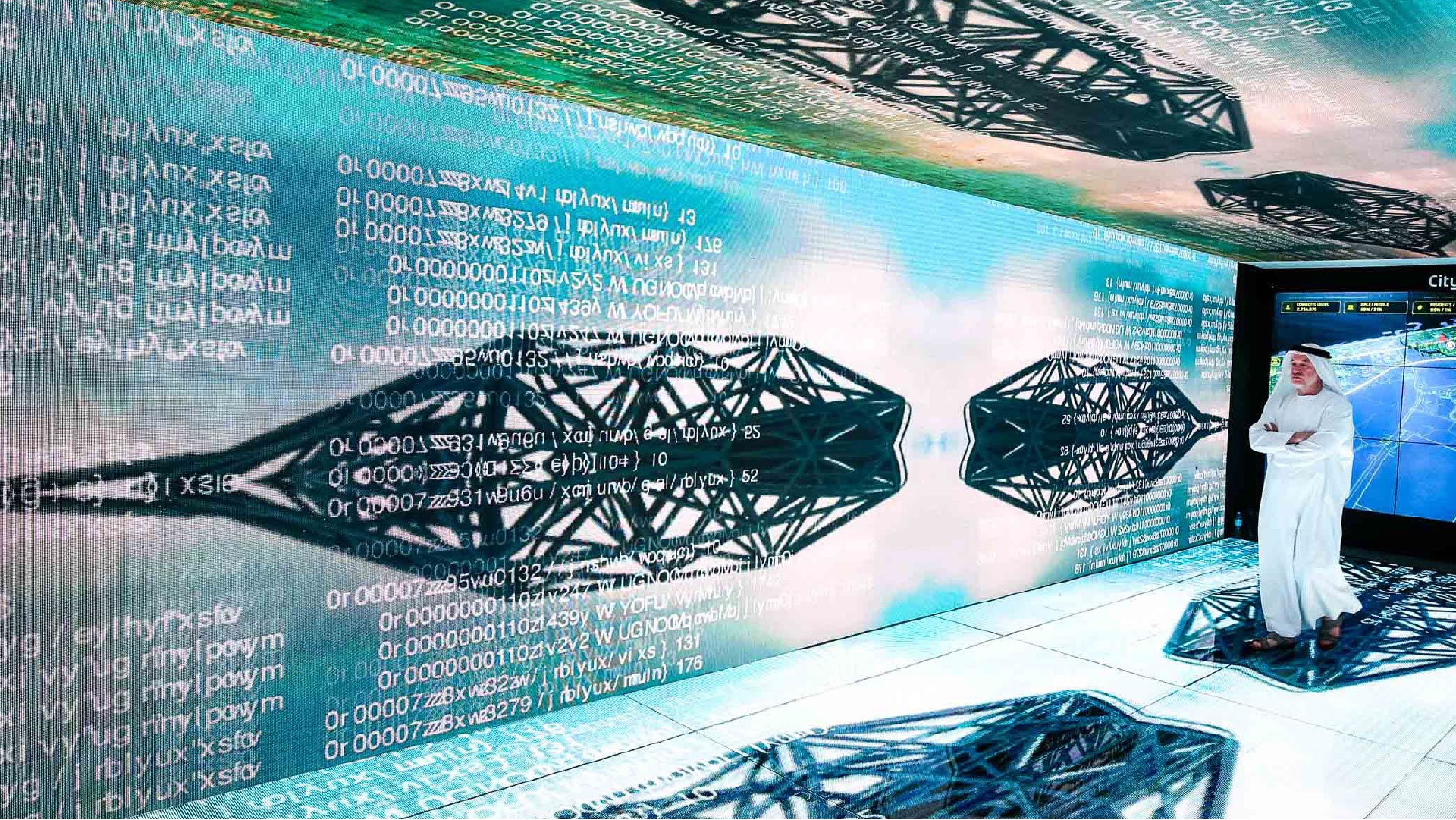
DUBAI, 24th November, 2021 (WAM) -- Dubai leads the Arab world in the latest edition of the Dubai Innovation Index, maintaining its 20th position globally in 2020, Dubai Chamber announced today as it released the Index at the 12th World Chambers Congress in Dubai.
The Index report, bearing the theme The Road to Recovery Through Resilience and Innovation, analysed a total of 39 cities. Seven new cities were added to the latest edition of the Index, which was developed by Dubai Chamber in collaboration with PwC.
Hamad Buamim, President and CEO, Dubai Chamber, said Dubai’s performance in the latest edition of the Index reflects its ability to deliver innovation-driven development in line with the vision of His Highness Sheikh Mohammed bin Rashid Al Maktoum, Vice President and Prime Minister of the UAE and Ruler of Dubai, to transform the emirate into a global innovation hub. "By providing a supportive environment, a robust regulatory and legislative framework and highly developed infrastructure, and comprehensively addressing various vital enabling drivers, Dubai is on track to achieve its aspirations under the follow-up and guidance of His Highness Sheikh Hamdan bin Mohammed bin Rashid Al Maktoum, Crown Prince of Dubai and Chairman of The Executive Council. By embracing new ideas to raise excellence and rapidly implementing dynamic creative solutions, Dubai is raising the performance of sectors across its economy," he added.
Under the first pillar of the Index, Agile Government, Dubai ranked 19th, scoring high marks for its e-Government services. Among the specific initiatives highlighted are the Dubai Paperless Strategy, which aims to achieve a paperless government by the end of 2021. As part of the transformation, 41 government entities have already halved their paper consumption and are moving towards 100% digitalisation. Also supporting Dubai’s performance on the Index is the Dubai Blockchain Strategy, which has facilitated the city’s adoption of blockchain records in 24 applications in various industries.
Under the Infrastructure category, Dubai was recognised for its academic institutions, including universities, boosting innovation by sharing their resources with startups and entrepreneurs. Also mentioned was the city’s attraction of foreign investment into its education sectors, with examples including the University of London’s Bayes Business School and the University of Birmingham setting up Campuses in the emirate. The Index also acknowledged Dubai’s Future District, with its research centre, incubators, accelerators and innovation space for future economy pioneers.
With regards to funding, Dubai performed well in the area of venture capital (VC), due to government-led incentives and support of global VCs looking to enter the market and those already invested in the market. Incentivisation approaches used include: tax incentives for VC funds, public-sector matching of investments and government support for early and mid-stage startups through additional services The report highlighted positive change within Dubai’s funding landscape and a wider availability of funding channels in their ecosystems through ensuring a diversity of offerings that accompany the VC funding opportunities, with its offerings ranging from government-backed guarantee schemes like the Mohammed bin Rashid Innovation Fund to venture capital deals, angel investments, peer-to-peer lending and crowd funding. The Dubai Next platform, launched by the Dubai government in 2021, is expected to further enhance financial access for the city’s innovators.
Under the Society category, Dubai ranked 16th as the city embraces immigration, with expats drawn to its wealth of opportunities and tolerant cultural and religious environment. Further attracting expatriates to the emirate are its long-term visa schemes, which reward them for their contribution to the city.
The Index highlights how innovation is part of Dubai’s DNA, with its leadership strongly recognising the pivotal role that it plays in the country’s sustainable development. It also highlights the impact of the National Innovation Strategy launched in 2014 by His Highness Sheikh Mohammed bin Rashid Al Maktoum, Vice President and Prime Minister of the UAE and Ruler of Dubai, which has played a major role in prioritising innovation across all sectors and as a vital pillar of the economy.
Singapore and Hong Kong maintained their first and second places on the Index respectively, with Stockholm climbing three places to replace London in third position, with the UK capital dropping five places to eighth position this year. Toronto makes the biggest jump of all the 39 cities on the Index, rising seven places to reach 10th place from its 17th position in 2019.
Examining the state of innovation in cities around the world during a time of unprecedented turmoil and change, the latest edition of the Dubai Innovation Index states that at the start of a new era, the global exchange of knowledge and learning is more important than ever.
Key takeaways from this year’s Index are that digitalisation underpins the transformation and success of the most innovative cities; governments in top innovative cities do more to promote innovation than just set policies, oversee regulations and provide incentives; and the collaboration that has resulted from the pandemic has accelerated innovation by offering innovators enhanced opportunities for knowledge sharing, market access and funding.
Another significant finding was that while Europe and North America remained the leading regions for innovative cities, metropolises in other regions - notably Asia-Pacific - have been closing the gap.
The report also highlights that 2014 saw the launch of the first Dubai Innovation Index, which was the first-of-its-kind city level assessment of innovation which has influenced a raft of new measures, including strategies policies and procedures introduced in areas that include public private partnerships, robotics, blockchain, artificial intelligence, the Internet of Things and 3D printing, all of which have placed Dubai firmly on the innovation map.
The assessment categories on the Dubai Innovation Index include Agile Government, Infrastructure, Funding, Business Environment, and Society, with Dubai scoring highly across a number of key metrics.
WAM/Hazem Hussein/Tariq alfaham/Hassan Bashir
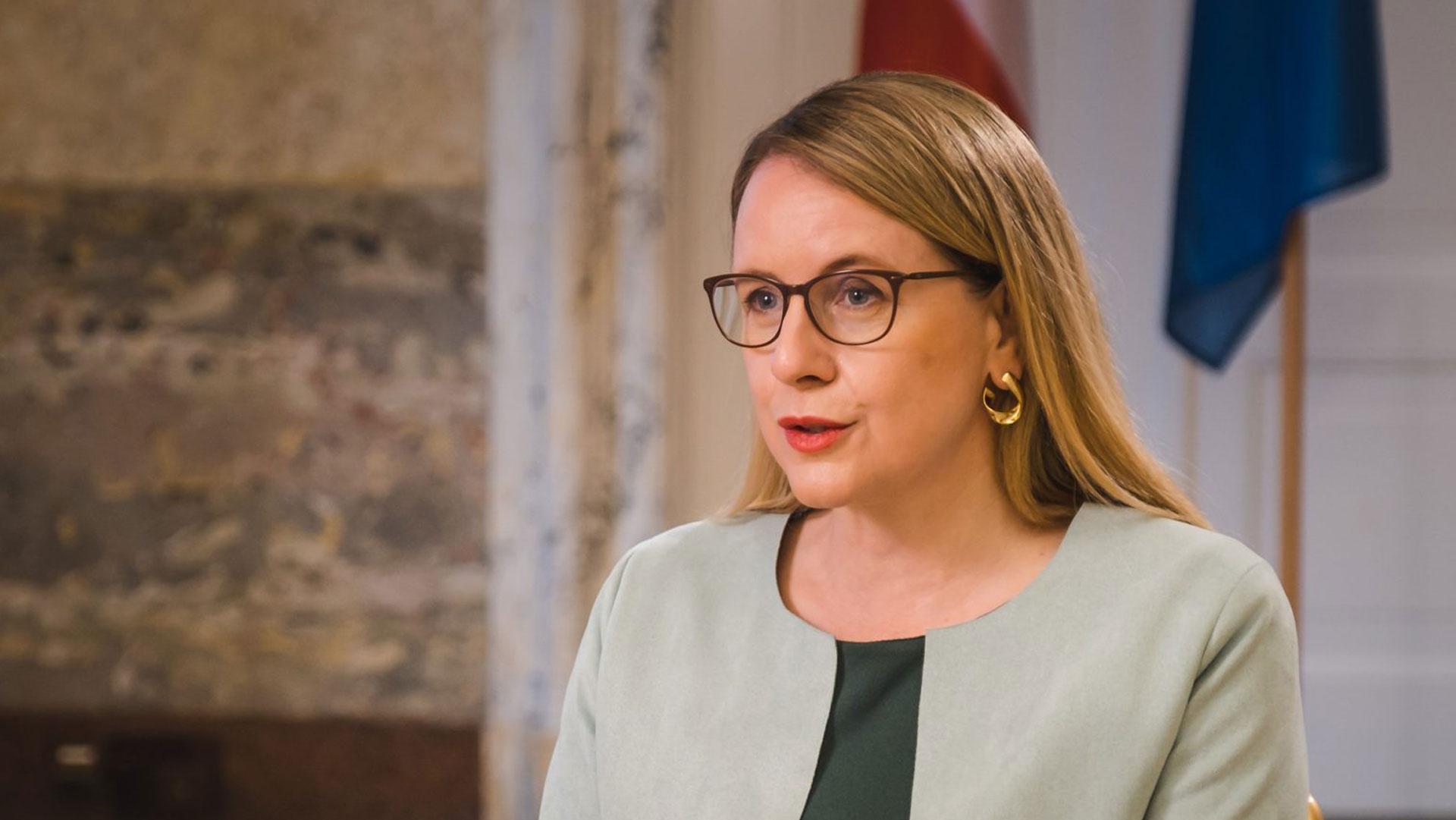
DUBAI, 21st November, 2021 (WAM) -- Omar bin Sultan Al Olama, Minister of State for Artificial Intelligence, Digital Economy, and Teleworking Applications, has said that the UAE government is keen to strengthen its global partnerships with various countries to transform challenges into opportunities that support the development process and build a better future, as per the directives of His Highness Sheikh Mohammed bin Rashid Al Maktoum, Vice President, Prime Minister and Ruler of Dubai.
He said said this in a meeting with Dr. Margarete Schramböck, Federal Minister for Digital and Economic Affairs of Austria, in Dubai. Al Olama also took Dr. Schramböck for a tour at the Emirates Towers in Dubai. The Austrian minister got acquainted with the experiences of Dubai Future Laboratories, Dubai Future Accelerators, Area 2071, and the Artificial Intelligence Office during the tour.
Dr. Schramböck was also briefed on the best practices, techniques and applications of future technology being tested and tried for employment in future vital sectors.
The UAE minister commended cooperation relations between the UAE and Austria, and the great potential to further develop them, especially in the fields of modern technology, digitisation and sustainable solutions.
The two ministers discussed ways to promote cooperation, exchange expertise and successful experiences in the fields of modern technology and artificial intelligence, and to enhance joint work to benefit from digitisation and artificial intelligence solutions in developing future work mechanisms.
The Austrian Minister was briefed on the most prominent digital solutions, technologies and experiences that are being tested within the "Dubai Future Laboratories" and the experience of "Area 2071", which represents an incubator for national initiatives aimed at achieving the goals of the UAE Centennial 2071.
WAM/Esraa Ismail/Binsal AbdulKader
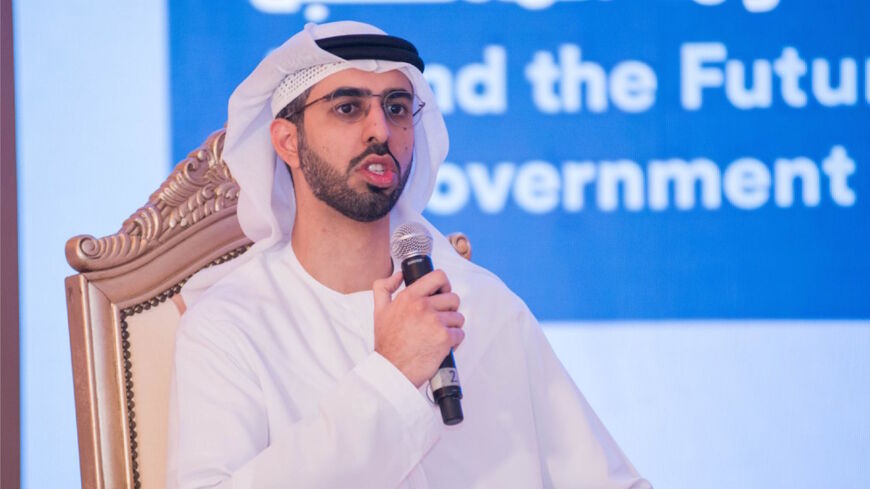
19. NOV. 2021
AI played big role in approach to pandemic, says UAE artificial intelligence minister
Omar Al Olama, the UAE’s AI Minister, explains how COVID-19 has been an accelerator for AI applications; why the US and China would benefit from a ‘constant dialogue’ on AI; and why ‘the new roads that we need to be building right now are roads in the digital realm.’
AI leads to ‘great return on investment’ in dealing with pandemic
The UAE approached the COVID-19 pandemic “as a scientist,” said Omar Al Olama, the UAE’s Minister of State for Artificial Intelligence, Digital Economy and Remote Work Applications.
Al Olama was appointed by the UAE as the first artificial intelligence (AI) minister in the world in 2017, when he was just 27 years old. That year, his ministry launched a strategy “to become one of the world leaders in AI by 2031.”
The COVID-19 pandemic, it turns out, may have accelerated the UAE’s applications of AI to governance and public health, and to establishing the Emirates as a world leader in AI, as Al Olama, now 31, explained in an exclusive Zoom interview with Al-Monitor on Nov. 18.
Al Olama describes a policy response to the pandemic by the UAE that has been data- and analytics-driven and characterized by openness to different ideas, nimbleness in response to changing events, and willingness to accept calculated risks.
“We actually were very open to many different solutions, and many different theories out there,” he said. “And we worked with everyone, from the East and the West, to try to find the right solutions that can be deployed in the UAE to make us go back to living a relatively normal life. Not the normal life that we're used to. People still need to wear masks. There's still a lot of focus on the general community's safety, but AI played a big role in getting us to this point."
The adaptation of AI was central to the UAE’s response to the pandemic, including in the development of the Alhosn public health application, which has allowed rapid innovation in testing and tracking for COVID. Based upon AI simulations, the government was also able to anticipate what would be needed at various stages of the pandemic — such as numbers of ventilators and vaccines required.
The process “produced a great return on investment for the UAE, because we were quickly able to become one of the leading countries in the world in terms of vaccination rates,” said Al Olama. “The reason why it was a calculated risk and the outcomes were very positive is because we leveraged every technology and human ingenuity with it to plan forward for this COVID-19 pandemic, while also deliberating continuously to understand if there are any changes that might affect these plans. So when a new variant came out, we actually had to go back, reassess the situation, understand what it means for our plans, and if there wasn't a big risk on it at the time, we would continue and make a few tweaks. If there was a big risk, then the plans would change.”
“And today everyone considers the UAE model one of the best models out there for dealing with the pandemic, and for going back to a life that is very close to the normal life we're used to,” he said.
9. NOV. 2021
Saif bin Zayed, Ahmed bin Tahnoun praise achievements of National Service recruits in developing future projects
DUBAI, 9th November, 2021 (WAM) -- H.H. Lt. General Sheikh Saif bin Zayed Al Nahyan, Deputy Prime Minister and Minister of the Interior, and Major General Pilot Sheikh Ahmed bin Tahnoun bin Mohammed Al Nahyan, Chairman of the National Service and Reserve Authority (NSR), praised the achievements of the National Service recruits who participated in a comprehensive training course on the development of technological and artificial intelligence (AI) projects organised by the National Artificial Intelligence Programme, in partnership with NSR.
During the visit, Lt. General Sheikh Saif and Major General Pilot Sheikh Ahmed were briefed by Omar Sultan Al Olama, Minister of State for Artificial Intelligence, Digital Economy and Teleworking Applications, about the initiatives led by the AI Office, and the progress of the recruits, who were selected to work under the framework of a comprehensive project based on AI solutions and tools.
Lt. General Sheikh Saif also visited the New Media Academy at the Emirates Towers, which aims to train qualified cadres in digital media.
Sheikh Saif highlighted the importance of national initiatives and projects to invest in the youth and build their capacities, reflecting the UAE’s objectives in the "Principles of the 50" document.
The country’s leadership relies on the youth, especially the National Service recruits, to achieve the country’s future strategic objectives, he added.
During the visit, Sheikh Saif lauded the "Future Lab," an innovative project developed by National Service recruits. He was also briefed by the recruits who created a maritime maps project about its details and its importance to the country.
Under the same framework, Lt. General Sheikh Saif and Major General Pilot Sheikh Ahmed visited the Palmwood Foundation at the Emirates Towers.
The foundation, which was established in partnership between the UAE and IDEO, a global design company committed to creating a positive impact, is one of the key international establishments in designing innovative concepts and developing technological products, services and solutions.
WAM/Esraa Ismail/MOHD AAMIR
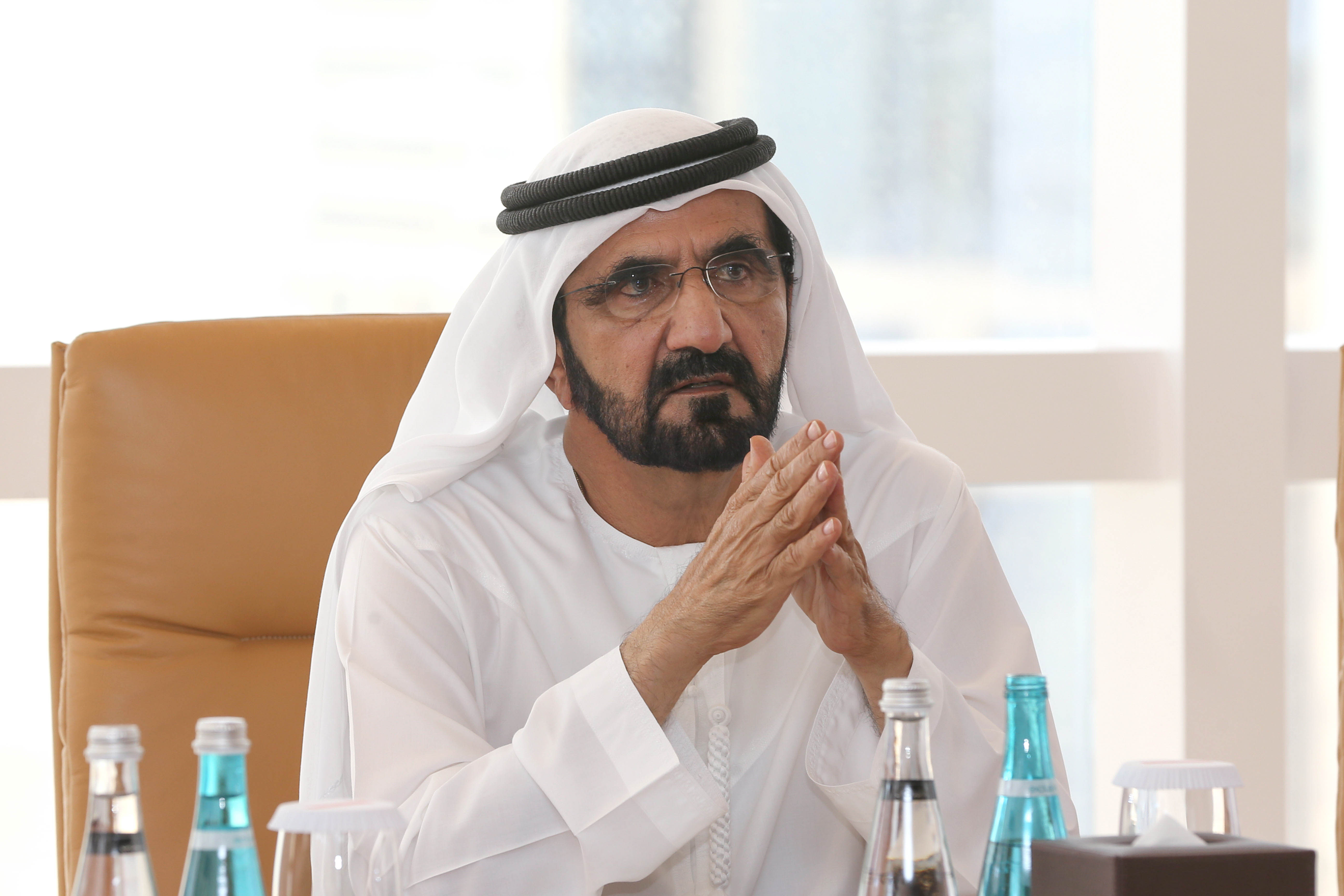
29. OCT. 2021
Mohammed bin Rashid declares 29 October as a day that honours coding and programming professionals
Media Office >>
Every year, 29 October will celebrate the role played by coding and programming professionals in advancing the nation’s vision for the growth and transformation of the IT sector. The move supports nationwide efforts to attract a new generation of programmers and coders to the country through initiatives such as the ‘National Program for Coders’, in line with the UAE’s growth strategy and the Fifty-Year Charter.
His Highness said coding and programming excellence represents a vital driver of innovation and creativity, technological and scientific excellence, economic growth and the nation’s future aspirations. The UAE is strongly focused on investing in the development of human capital and providing an environment for talent to thrive, he said.
“Twenty years ago, we launched the region’s first digital government, which was the cornerstone of our vision to build the best government in the world and create a new model of development that empowers people to turn their creative and entrepreneurial aspirations into reality. We want to honour the contributions of coders and programmers so that we can encourage future generations of technology professionals to participate in building the future of the UAE.”
The decision of HH Sheikh Mohammed bin Rashid to honour the contributions of coders and programmers on 29 October will help promote the development of technology and artificial intelligence related skills among future generations.
The initiative also provides a significant boost to achieving the objectives of the ‘National Program for Coders’ to train and attract 100,000 programmers and create 1,000 major digital companies within five years. The Program also enables technology entrepreneurs, businesses and startups to participate in advancing digital transformation in various key sectors. In addition, it seeks to provide opportunities for fostering cooperation between government and private sector entities to turn promising ideas into full-fledged projects.
The ‘National Program for Coders’ focuses on five key pillars, which include: supporting coders, entrepreneurs, startups, large companies and the academic sector; developing a comprehensive platform for promoting engagement and linkages between coders and local companies and universities; launching skill development initiatives featuring international trainers aimed at developing local talent; attracting the best international coding professionals to the UAE; and recommending policies to foster the development of the coding sector in cooperation with various government entities.
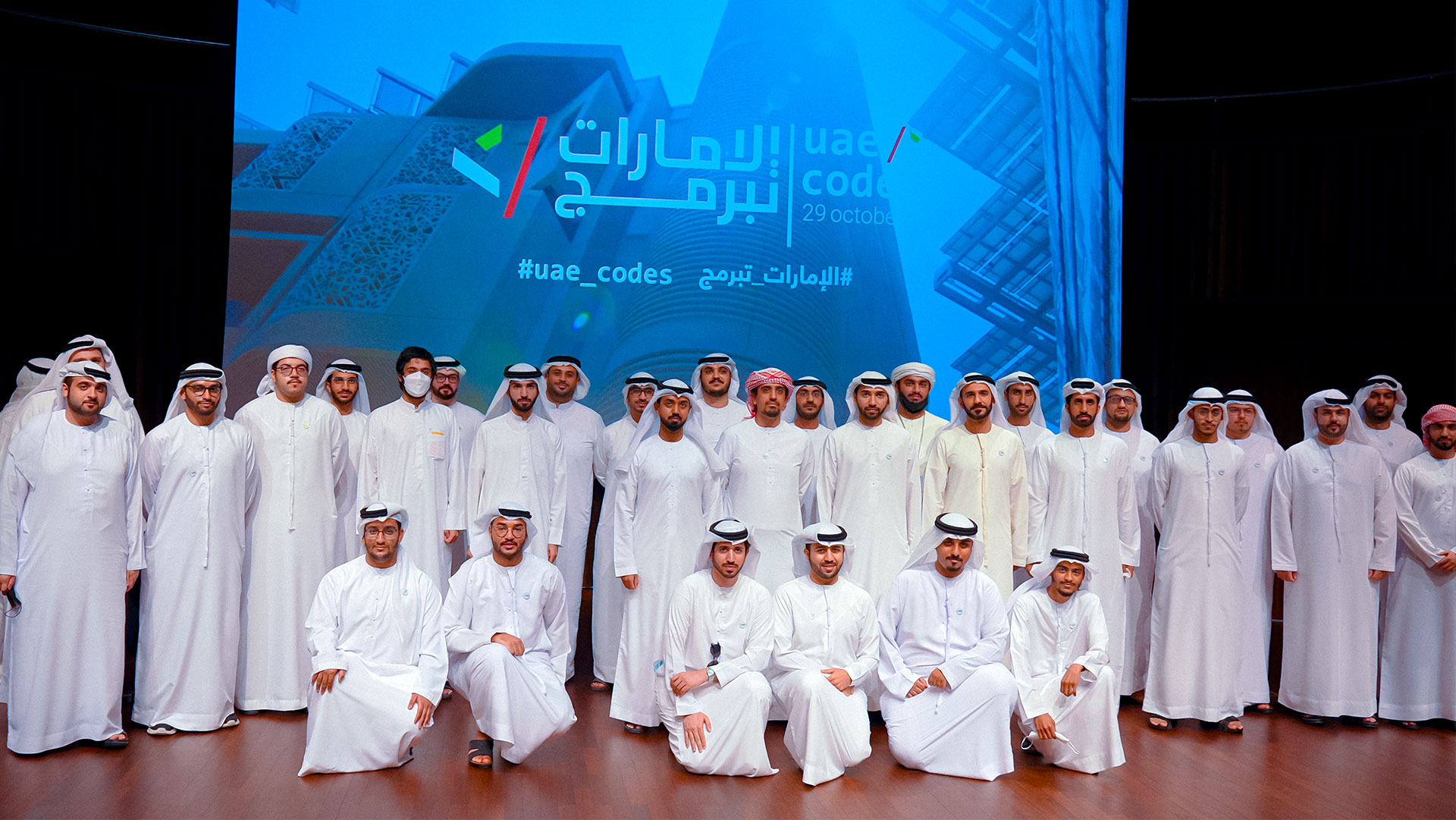
DUBAI, 28th October, 2021 (WAM) -- The 'UAE Codes' Day is set to begin on Friday, in line with the directives of His Highness Sheikh Mohammed bin Rashid Al Maktoum, Vice President, Prime Minister and Ruler of Dubai, to adopt 29th October an annual day to celebrate coding.
The day acknowledges the most prominent achievements in the fields of coding and computer science, and recognises successful initiatives aiming to attract and enable a new generation of coders who would help boost the UAE’s march towards the future and achieve the UAE Centennial 2071 goals.
On this occasion, Omar bin Sultan Al Olama, Minister of State for Artificial Intelligence, Digital Economy, and Teleworking Applications, stated that the UAE’s digital transformation, led by His Highness Sheikh Mohammed bin Rashid Al Maktoum, secured the UAE's position as a global destination for empowering youth with future skills, tools and modern technologies to enhance their participation in developing innovative solutions to address challenges and create a better future.
Al Olama added, "The 'UAE Codes' day encourages youth to adopt coding and AI technologies and master the language of the future. It further helps them enhance their capabilities in technological innovation, provides them with an exceptional platform to celebrate their achievements, and highlights the efforts of the UAE in building a new generation of coders and innovators. These efforts aim to consolidate the UAE’s global position as an incubator and enabler for talents and skills employing modern technologies in an advanced ecosystem as a main pillar of the UAE's development towards the Next 50."
The 'UAE Codes' Day coincides with the anniversary of inaugurating the first e-government in the region twenty years ago by Sheikh Mohammed bin Rashid, on 29th October, 2001. It aims to provide a platform for coders, exceptional talents and future skills in the fields of AI and coding, celebrate their achievements, and highlights the UAE’s progress in fields of the 4IR, coding, and adoption of AI technologies.
The UAE Codes Day will witness more than 65 events organised by about 50 organisations and entities across the UAE. Activities will include mainly workshops, competitions, coding hackathons, and other events aiming to introduce community members to the basics of coding and motivates them to gain knowledge. The events also aim to acquaint participants with the contribution of coding to the great evolution the world is witnessing today and its role in promoting societies’ development.
The UAE Codes Day focuses on enhancing exchange of experiences and knowledge, upskilling coding and computer science capabilities, and providing unique opportunities to new generations to participate in designing the future. This reflects the efforts of the UAE government and complements the National Program for Coders’ efforts to promote learning programming language, coding and excel in it.
WAM/Amjad Saleh/Tariq alfaham
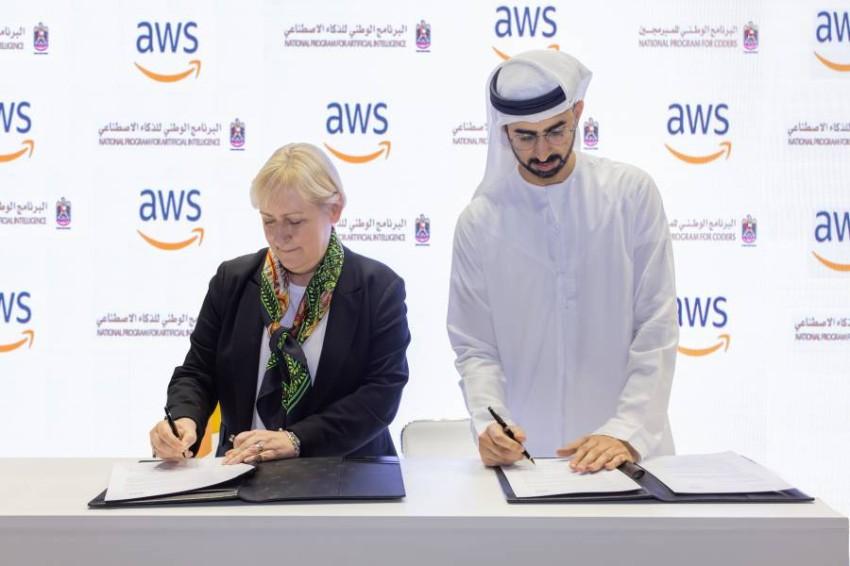
Image source: alroeya.com >>
DUBAI, 20th October, 2021 (WAM) -- The UAE government has launched "Pioneers of the Digital Economy" initiative, which aims to enhance capabilities of young talents and provide them with the knowledge and expertise needed to develop advanced future technology that will positively influence the UAE’s economy.
The initiative also targets empowering talents to compete for the best job opportunities in global leading companies in the fields of coding and Artificial Intelligence (AI), and develop innovative solutions to challenges, thus promoting future digital economy in the UAE and boosting its global leadership and competitiveness.
The initiative, launched by the National Programme for Artificial Intelligence, provides a platform to enhance partnerships between public and private sectors, talented skills in the field of software and modern technologies, and international technology leaders operating in the UAE. It encourages international leading companies to provide opportunities for talents to promote their active participation in supporting the digital transformation in the UAE and building an advanced digital economy that contributes to enhancing people's wellbeing and building a better future.
Under "Pioneers of the Digital Economy" initiative and during the 41st edition of GITEX Global 2021, the AI Office announced collaborating with Amazon Web Services (AWS), to enable talents to compete in the fields of technology and software.
Omar bin Sultan Al Olama, Minister of State for Artificial Intelligence, Digital Economy, and Teleworking Applications, stated that the UAE government adopts modern technologies and AI tools for building a sustainable digital economy, in line with the directives of His Highness Sheikh Mohammed bin Rashid Al Maktoum, Vice President, Prime Minister and Ruler of Dubai, to provide the best possible solutions and promote the UAE’s global competitiveness.
Al Olama added that forging partnerships and reinforcing cooperation with entities and companies that support global economies help accelerate digital transformation in the UAE and its transition towards a sustainable digital economy. He further noted that launching "Pioneers of the Digital Economy" initiative, in collaboration with Amazon Web Services, is part of the ongoing efforts of the AI Office to enable talents specialised in digitisation and AI technologies to actively engage in promoting the national digital economy.
Isabella Groegor-Cechowicz, Vice President of Europe, Middle East, and Africa (EMEA), AWS Worldwide Public Sector, said, "We are pleased to be collaborating with the UAE AI Office to support talent development of UAE nationals as we continue to build a diverse and inclusive workforce at AWS. With the upcoming launch of the AWS data centers in the UAE in the first half of 2022, we are hiring teams across multiple functions to support cloud adoption and to help accelerate the UAE’s digital transformation strategy."
As part of its cooperation with the AI Office, Amazon Web Services will share a periodic list of job opportunities available at the company’s headquarters in the UAE, while encouraging local talents to apply for these vacancies, thus enhancing their capabilities in various fields of digital economy.
The two parties shall further cooperate to build the capabilities of national talents, enable them to adopt modern technologies, introduce them to the experiences of global tech companies, and provide them with the best opportunities to design innovative solutions and services. This goes in line with the UAE’s 'Principles of the 50' focusing on enhancing human capital, achieving digital, technical and scientific excellence, and building the best and most dynamic economy in the world.
WAM/Amjad Saleh/MOHD AAMIR
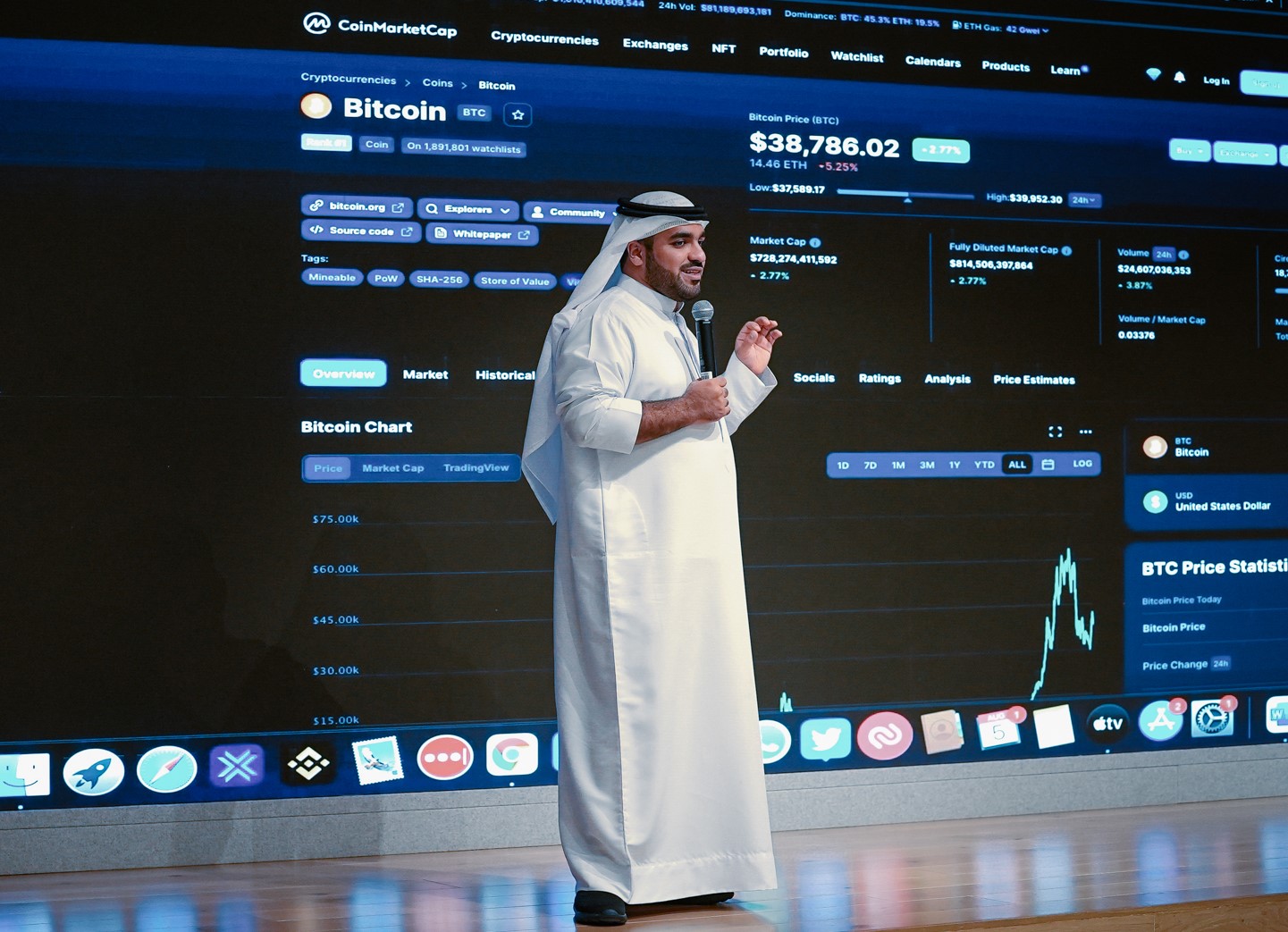
DUBAI, 13th September, 2021 (WAM) -- Over its three editions, the UAE AI CAMP, launched by the National Programme for Artificial Intelligence (AI), attracted more than 15,000 students of different ages, specialisations and educational levels in schools and universities, aiming to empower youth with these skills and advanced technologies.
The third edition of the camp, held in cooperation with the National Programme for Coders, aimed to encourage youth to develop innovative solutions for future challenges, leveraging their experiences during their participation in training, workshops, webinars and talks.
The camp saw broad participation from students and 15 strategic partnerships, including many national entities and mega international companies specialising in coding and AI, to develop certified digital content that students can benefit from in various fields.
Omar bin Sultan Al Olama, Minister of State for Artificial Intelligence, Digital Economy and Teleworking Applications, stressed the importance of the AI sector in achieving sustainable change and supporting efforts to design and build a better future for communities. He added that the UAE government dedicates all its capabilities, programmes and initiatives to enhance youth skills and build competencies to shape the future and serve communities.
The UAE AI Camp 3.0 also witnessed the establishment of partnerships with several government entities, including Dubai Police, Dubai Digital Authority, Mohammed Bin Rashid Space Centre (MBRSC), Dubai Future Labs (DFL), and Dubai Desert Conservation Reserve (DDCR). Several leading private sector entities also participated in the camp, including Facebook, Microsoft, Huawei, Le Wagon, Careem, SAP, among other AI-specialist companies.
Jiawei Liu, Huawei – UAE CEO, stated, "Artificial intelligence is the next general-purpose technology. It will create a positive spill-over effect for all industries, considering its position as the new force driving social transformation."
"Huawei uses its global experience and resources to build the AI Ecosystem, that enables a culture of digitalisation and intelligent transformation in the UAE which steadily elevates its position as a global leader in the adoption of innovativion," he added.
Tarek Mohammed, Head of Virtual Asset Section of Dubai Police GHQ, stated that the camp empowers youth to obtain knowledge and experience to develop innovative solutions to challenges. "We are delighted to support the UAE AI Summer Camp with our programmes, and we are looking forward to more initiatives that support youth in the UAE," he added.
Dr. Ali Alazzawi, City Experience Advisor at Dubai Digital Authority, confirmed that the authority is running full speed ahead towards the technical implementation of AI in the country to achieve the goals of the UAE Centennial 2071.
The camp provided 5,000 participants with the opportunity to learn about the most prominent emerging technologies in future fields and acquire skills that help prepare them to start their coding careers.
Facebook organised an AI camp from 15th to 26h August, which attracted 50 participants chosen from among 700 applicants. The camp hosted knowledge sessions, theoretical and practical workshops, and webinars, during which more than 20 topics were presented. WAM/Esraa Ismail/Amjad Saleh

